The British violinist considers how to differentiate yourself as a musician and person
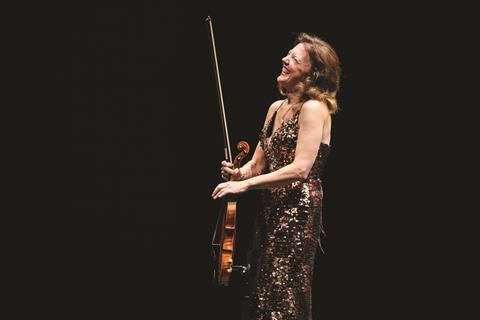
Discover more Featured Stories like this in The Strad Playing Hub.
Read more premium content for subscribers here
The quality of music education in state schools has always been a subject close to my heart, not least because if it weren’t for Peter Watmough, the fantastic teacher I had when I was in primary school, I wouldn’t be where I am today. He was incredibly generous, and when he realised I had talent, urged my parents to find a specialist music school. And so I began at the Menuhin School at the age of eight. It was a perfect fit for me. I could look up the older students and knew that, if I got the work done, I could be like them. It was very inspiring.
Pauline Scott, my teacher from the ages of 14 to 21, had a huge impact on me. I had gone a few years without a full-time teacher, and my technique had suffered somewhat. She brought me back to basics. Being told only to do scales was a bit demoralising for a 14-year-old! But it was completely necessary. I re-emerged with a very strong technique and have reaped the benefits of this during my entire career.
Collaborative performances are always the best ones
I then studied with Lorand Fenyves during a winter in Toronto. It was fascinating to go back to a European school of playing, coming from Pauline Scott’s American style. I loved that contrast. With Lorand I learnt six major concertos and six major sonatas, as well as other staple works. I felt that after being in musical institutions (the Menuhin School and then the Guildhall School of Music and Drama) for 13 years I needed to stand on my own two feet. And it was during this time that I realised how interested I was in niche repertoire.
It’s incredibly important in one’s career to do it your own way. If you have a composer whose music really speaks to you (for me, early on this was Delius) then you can use that to make a mark. This was also true of my first recording. While it was standard to record the Mendelssohn and Bruch concertos in debut recordings I pushed to do the Dvořák Concerto in mine, which was rarely played at the time. It was a massive success, and I think it was precisely because of the tension that came with it being underplayed and fresh.
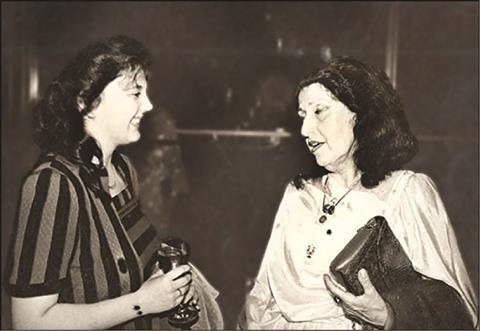
During the early years of my career, British violin soloists, let alone British female violin soloists, were rather unfashionable. It was a very male-dominated industry, and sexism was an unfortunate reality. To overcome these challenges – particularly when working with old-school conductors not wanting to lose face in front of their orchestras – I had to find ways to work collaboratively. And ultimately, it’s the collaborative performances that are always the best ones – those where both the soloist and conductor bring their own flair and musicality.
In a more practical sense, be punctual! Be the person who doesn’t just provide a unique performance, but who’s reliable and nice to have around, makes sure everyone is OK, and gets on with management, promoters and sponsors. Don’t do the minimum; do the maximum.
INTERVIEW BY RITA FERNANDES
Watch: Violinists Tasmin Little and Jennifer Pike on memorisation techniques
Read: Sentimental Work: Tasmin Little
Discover more Featured Stories like this in The Strad Playing Hub.
Read more premium content for subscribers here
The number one source for playing and teaching books, guides, CDs, calendars and back issues of the magazine.
In The Best of Technique you’ll discover the top playing tips of the world’s leading string players and teachers. It’s packed full of exercises for students, plus examples from the standard repertoire to show you how to integrate the technique into your playing.
The Strad’s Masterclass series brings together the finest string players with some of the greatest string works ever written. Always one of our most popular sections, Masterclass has been an invaluable aid to aspiring soloists, chamber musicians and string teachers since the 1990s.
American collector David L. Fulton amassed one of the 20th century’s finest collections of stringed instruments. This year’s calendar pays tribute to some of these priceless treasures, including Yehudi Menuhin’s celebrated ‘Lord Wilton’ Guarneri, the Carlo Bergonzi once played by Fritz Kreisler, and four instruments by Antonio Stradivari.

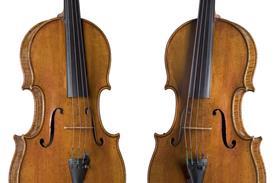


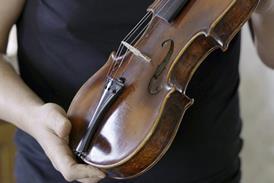




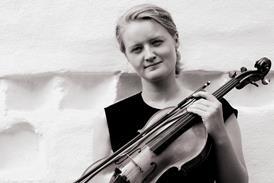



























No comments yet